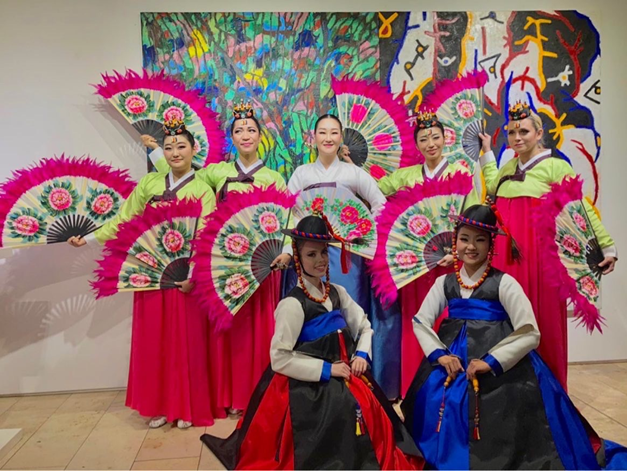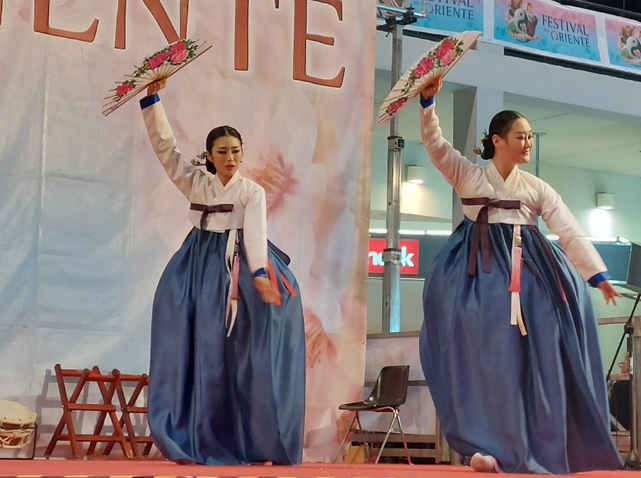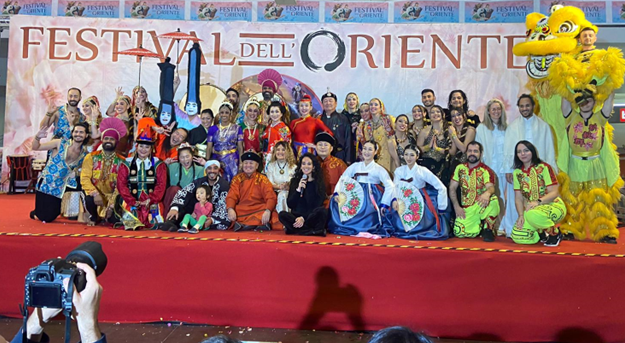- 한국어
- English
- 日本語
- 中文
- العربية
- Español
- Français
- Deutsch
- Pусский
- Tiếng Việt
- Indonesian
The annual Festival dell'Oriente (Festival of the Orient) is held at several locations in Italy, featuring shows, concerts, food, exhibitions and other programs highlighting the cultures and traditions of East Asia.
On Dec. 8, I attended a performance at this festival by the Berlin Korean Dance Project in my home city of Padua. The dancers performed traditional Korean dance so gracefully that I decided to contact group leader Seo Min-seong to learn more about his troupe. The following are excerpts from a Jan. 12 interview with Seo through e-mail.

The Berlin Korean Dance Project seeks to spread traditional Korean dance throughout the world. (Berlin Korean Dance Project)
How was the Berlin Korean Dance Project born?
I and a traditional Korean dance class and troupe formed the group to promote traditional Korean culture and arts. Our members are Berlin residents, immigrants and international students who love Korean culture and dance. We conduct cultural dissemination so that anyone can easily access traditional Korean performing arts.
What pieces did your group perform at the festival?
Our works were "Buchae Sanjo," an improvised dance; "Sarangga," which literally means "love song; "Bango Dance," a dance performed with a small hand drum; "Geommu," or sword dance; "Buchaechum," a fan dance now popular worldwide; and "Beyond the Dancing Garden," a group dance based on the basic movements of traditional Korean dance and other styles.

Dancers Lee Zi-hern and Seo Min-seong of the Berlin Korean Dance Project perform the improvised dance "Buchae Sanjo." (Berlin Korean Dance Project)
Is it difficult to spread traditional Korean culture?
It depends on the city and culture, but many abroad are familiar with Korean culture thanks to K-pop, K-dramas and cosmetics. Staff in Korean cultural industries are working hard to spread their nation's traditional culture and arts to the world as well as infusing well-known content. So I think spreading traditional culture abroad is no longer difficult.
What are your group's plans?
In addition to performing, I look forward to giving lectures at universities in Europe for departments related to Korea and East Asia. To incorporate traditional Korean dance into multiple fields across geographical and cultural boundaries, I am pursuing art that coexists through collaboration with traditional Korean dance movements and philosophy. I will continue educational and cultural dissemination activities to make traditional Korean art more easily accessible.

Festival dell’Oriente (Festival of the Orient) is held every year in Italy at several locations to show the culture of the Far East. (Daniela Astolfi)
msjeon22@korea.kr
*This article is written by a Korea.net Honorary Reporter. Our group of Honorary Reporters are from all around the world, and they share with Korea.net their love and passion for all things Korean.